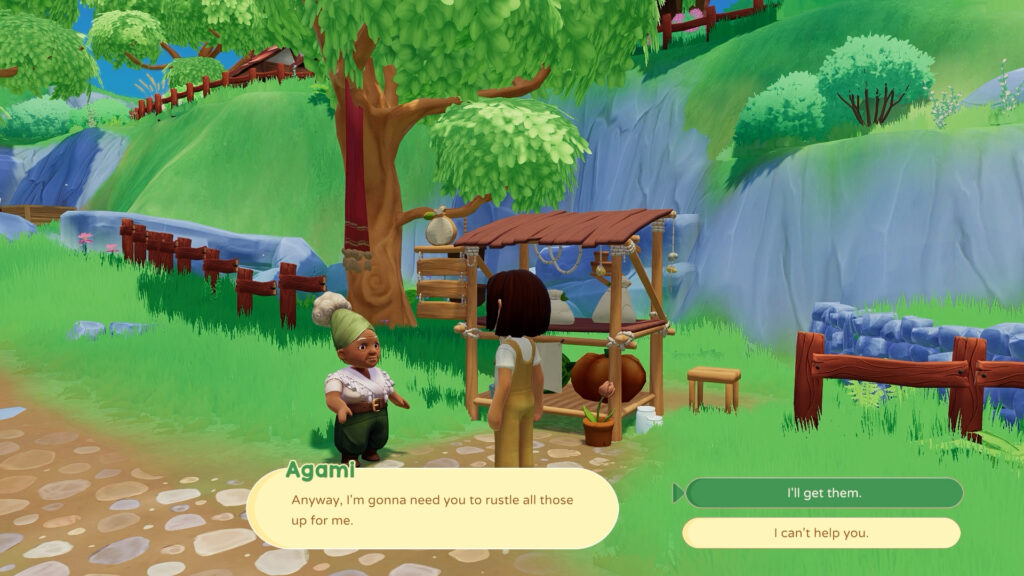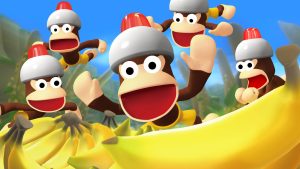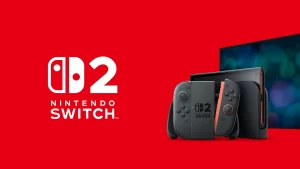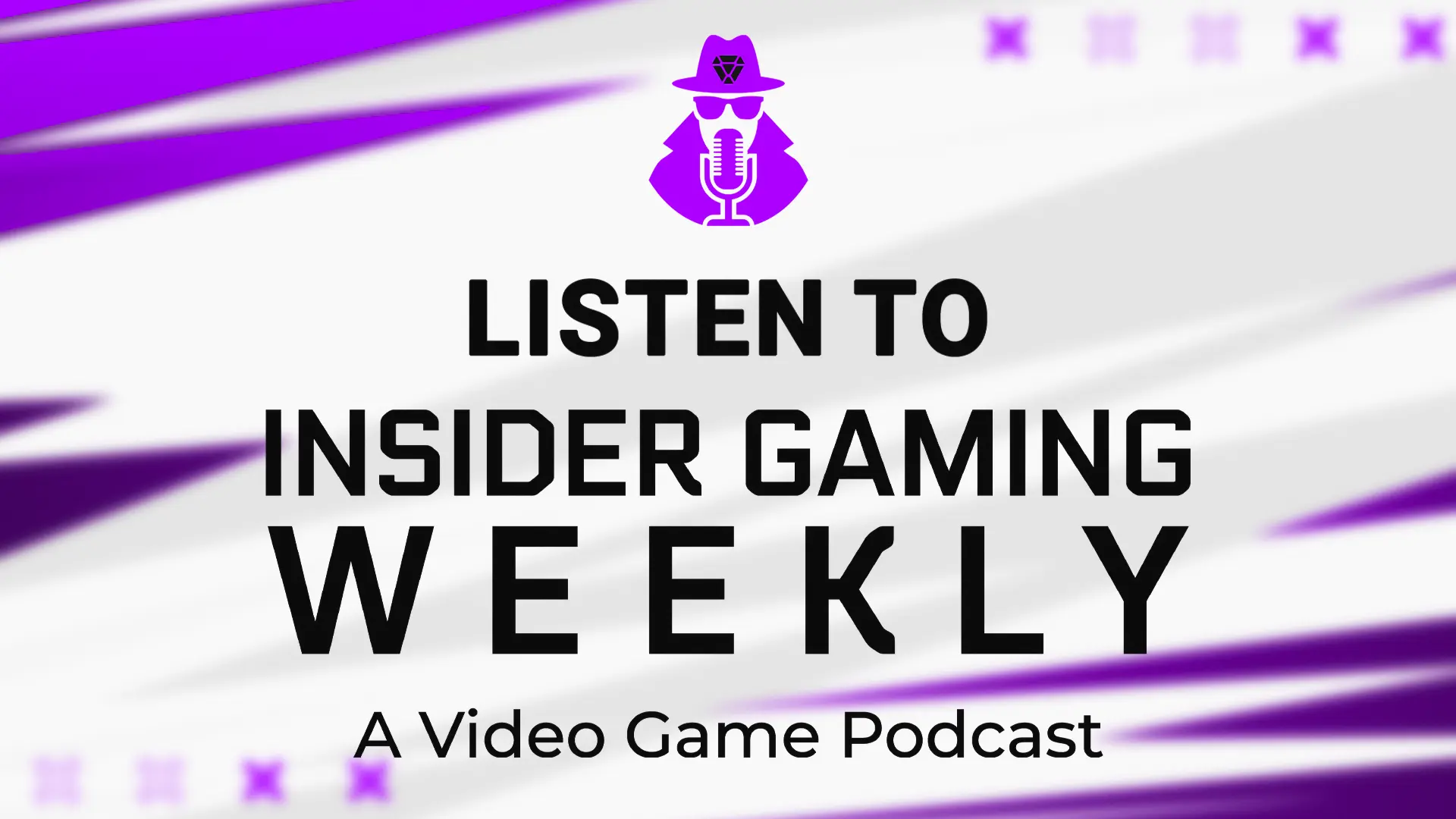Everyone remembers when they were a child. They wake up early, watching cartoons with a bowl of cereal, and playing their favorite video games all day without a care in the world. It’s a time that’s quickly forgotten or missed as people get older and responsibilities get in the way. Pale
For the latest episode of The Indie Initiative, I spoke with Paleo Pines game director Nina Roussakoff about making people feel young again, the process behind the game’s development, and more.
You can read the full Paleo Pines interview or watch the latest episode below. Paleo Pines is out now for PC, Xbox Series X|S, Xbox One, PlayStation 5, PlayStation 4, and Nintendo Switch.
You can also catch up on past interviews from The Indie Initiative by visiting our YouTube channel.
Paleo Pines Interview
So for those that may not know what Paleo Pines is, I start this off, every interview, I start with. Could you give me a quick elevator pitch of what Paleo Pines is?
Nina Roussakoff: Okay. Gosh. Paleo Pines is the most adorable dinosaur ranching sim. It’s inspired by games such as Animal Crossing, Stardew Valley, Harvest Moon, as the sort of precursor to that, as well as our enduring childhood love of dinosaurs. The game itself is a love letter to childhood summers — those really long summers, they just go on forever and you’re out in the woods and you’re playing and your imagination is so alive. And of course, you can imagine a dinosaur around every corner. It’s it’s a game about that. It’s capturing that sort of childhood joy.
What went into the decision to make it a dino ranching title?
Roussakoff: I think a part of that was because of the great passion and love that Jordan Bradley, the concept artist who came up with the concept, has for dinosaurs. The concept for the game emerged from a game jam and then everybody loved it so much that, you know, obviously we took that further as a studio and really looked at what that game could become. But that’s that’s how it was conceived.
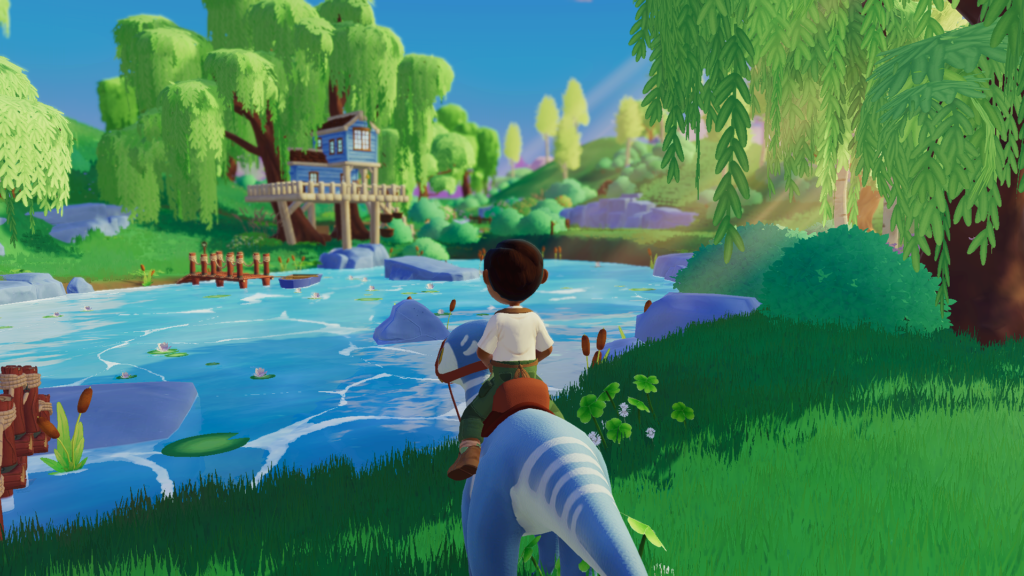
What was the process like deciding the features of the game to make sure it stands out because there are so many indie titles, so many great titles that it gets to where, okay, we need to find a way to make our game noticeable to the community?
Roussakoff: Wow. I mean, that’s such an interesting way of looking at it, I think. I would say actually, for us, it was clear that it did stand out because of the dinos. And what we looked at more was creating a game that would really feel great; that would really, really embrace what the vision was.
And one of the things that we did quite early on is create a high-level vision document which really narrowed down like what it is that the game was meant to feel like. It was very much driven around, Yeah, like I said, capturing that childhood spirit and really capturing the feelings that you would feel, you know, if you did genuinely had dino pals and really as kind of focusing in on that. And from that high-level vision, all the features kind of naturally rolled out from that in a way, because once you know the kind of feeling you’re trying to capture, the decisions about how the features are meant to work becomes that much easier.
How do you go about deciding which features to prioritize?
Roussakoff: Well, we had we had defined what our core pillars were. So we had dinosaurs. We wanted to have this sort of sense of a harmonious community. And the sense, of sort, of discovery. That was really important to us.
The idea that there was something behind every rock, behind every tree. That there were new things around. Just, you know, also like features unlocking and stuff like that. So discovery, dinosaurs, community…and settler.
At least we named it Settler. But it’s, it’s about living off the land, the back to basics. Living was quite important for us.
So, when you look at those four it already tells you some of the things that are and aren’t possible, like where you should kind of put more of the emphasis. So, of course, farming made a lot of sense, for example, for this title, because if you want to have that back to basics of living, it’s very much part of that. The fantasy of that, as well as providing food for the community, is just such a sort of part of that as well. So it tied into like a few different pillars, whereas some other features, for example, that are not included in the game is fishing is something that people have asked for, are really interested in. That’s something really common to this genre. But it didn’t really hit home on any of the core pillars for us. And it’s not that we might not ever consider putting fishing in, but it wasn’t something that was going to be in there on release because, you know, there’s a finite budget and you have to decide what you do or else you just make the mother of all games, right?
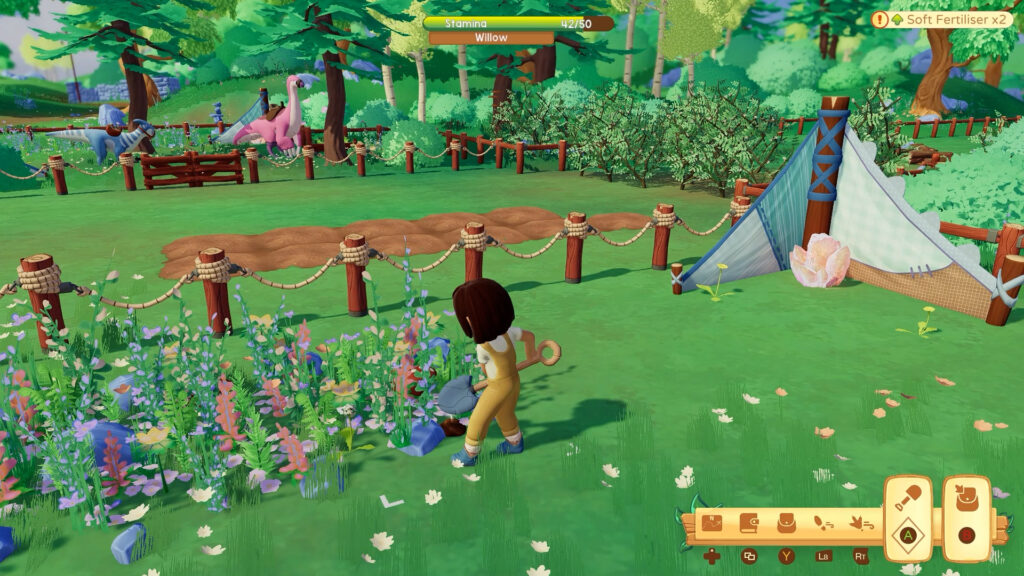
How difficult has making some of these decisions been like, okay, well, we just can’t justify working on this feature or adding this when all this other stuff over here needs to get completed. What goes into the decision process to get these narrowed down to make sure you’re not what scope creeping or just expanding into like a reverse pyramid where you’re just opening this funnel of everything?
Roussakoff: Oh, my God. Yes. All of those things. I mean, it is really difficult. It’s difficult because everybody’s very passionate. Everybody loves making this game. Everybody wants it to be the best it could possibly be, myself included. But there’s also a lot of practical considerations that need to be taken into account.
And yeah, as you said, if you try and do everything, the game is never going to come out and there’s milestones to hit. You know, you got to keep the publisher happy. Yeah, you have to consider what the community is going to think of, what’s going to be meaningful to them. Sometimes you might want to take into account things like marketing considerations because, you know, ultimately we also need to hopefully sell the game enough to make back the money that it cost to make it. And you know how expensive making games is?
I think it’s just it’s deceptive, right? I mean, Paleo Pines is a multi-million-pound project, right? Like you would not most people don’t think about that when they look at a game and it’s kind of cozy and it’s wholesome. They think, oh, this is, you know, just a small little game. It’s not.
With Paleo Pines itself, the Animal Crossing comparisons are going to be there from some of the UI, from just how you interact with the townsfolk and things like that. How do you go about making sure you’re similar in a way to honor those games of the past, but you make sure you are different enough?
Roussakoff: Good question. I think in a way, I’ve never felt too concerned about it because of our approach to design. And by that, I mean that we always went to the feelings first. So to give you an example: The idea of having this harmonious community, one of the things that was really important for us was that you form relationships with the community gradually and organically by training resources and exchanging skills. That was kind of like a fundamental sort of idea of how we wanted to do that aspect.
So once, you know, once you’ve established that, you know, we prototyped a few different ways of doing trading, for example. We looked at, well, how can we make it feel organic and gradual? And then, yes, of course, you do look at what’s out there and you take inspiration from existing games, because sometimes these things have been done really cleverly, really well, and there’s a perfect solution and it fits in this game. But a lot of the time it was also a challenge because actually maybe things are not done that way. To give you an example, trading resources. We looked at several different games and assessed how fun it is to do it that way. What we concluded is it’s not actually that fun to trade stuff for stuff without any currency involved. It’s more fun to have a currency. But we started off, we prototyped it, without a currency. We did look at also other games that did it and how they did it and whether they, you know, did it in a way that worked for the player or not. I looked at reviews, looked at lots of different things. And in the end, you know, it made more sense to allow the trading, but still also have a currency in the mix so that you can still swap things for things. But if you, you know, put a little more on your side then there’s also shells as well as the stuff that you’re trading for.
And that UI And how that all has come together is something that’s, as far as I know, unique to our game. And a lot of research has gone into that. And we’ve looked at, you know, like for example, My Time at Portia has kind of a similar thing. We did look at those things, but ultimately we always came to our own solution and our own conclusion at the end.
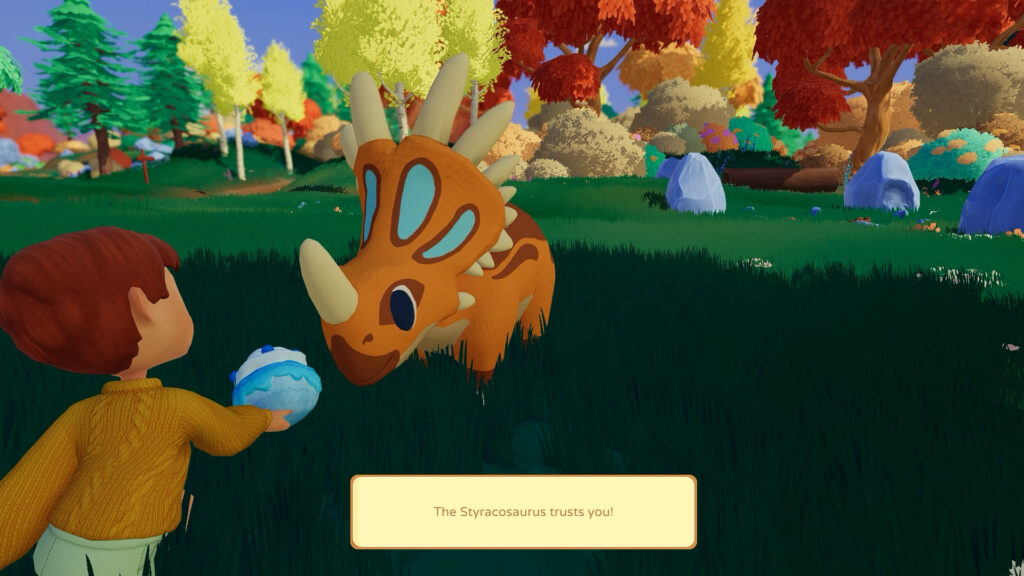
With the art style, some people who will look at it will look and think it’s a game just for kids. What can you say to kind of ease those concerns?
Roussakoff: It just is fundamentally, you know, it wasn’t designed for kids. It wasn’t made with kids in mind. It is a bit picture book in terms of its visuals. It’s a bit like Disney, you know, like the dialog, the characters. If children play it, they’re not going to get some of the jokes that are in there. But adults will. So it walks that kind of line, but it’s more a game for grown-ups than it is for children at its heart. It’s just that I think children probably will also enjoy it.
Is Paleo Pines going to be a game that has special events throughout the year or seasons and things like that?
Roussakoff: So in the game there are seasons and there are also festivals in the game. But as for post-launch plans and in terms of what we do with that, we don’t have anything specifically. Just because we don’t know what’s going to happen in terms of the release.
What should potential players know?
Roussakoff: If people are on the fence about Paleo Pines. It is deeper than you think. There is more to do than you might imagine. And. Don’t let. First impressions stop you from trying it. The demo’s free on Steam. Give it a go.
